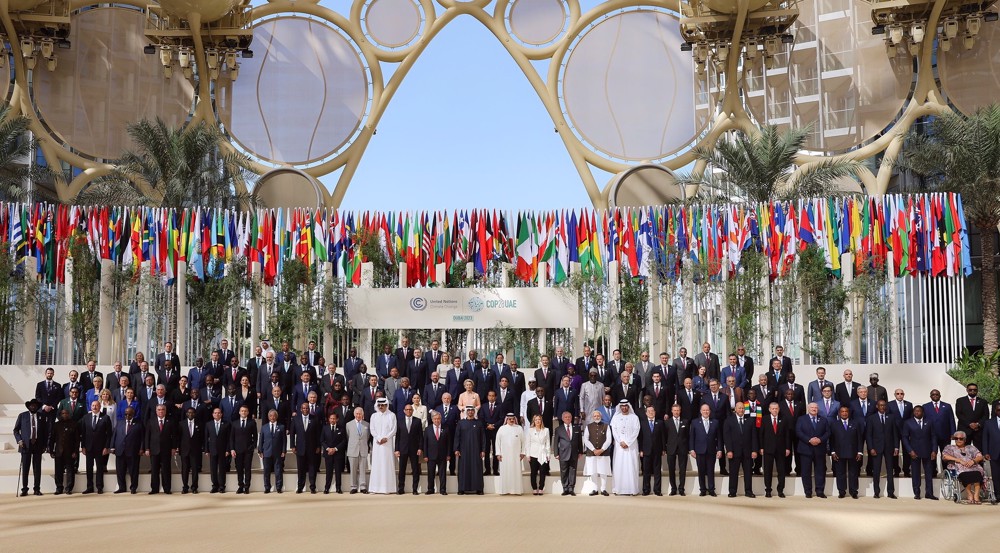
The Islamic Republic of Iran’s delegation to the 2023 United Nations Climate Change Conference (COP28) has left the venue of the international event in the United Arab Emirates in protest at the presence of Israel’s representative and the occupying regime’s ongoing genocidal war in the besieged Gaza Strip.
The Iranian delegation, headed by Energy Minister Ali Akbar Mehrabian, declined to attend the UN's COP28 climate summit in Dubai on Friday due to the presence of Israeli president Isaac Herzog.
“Iran regards the political and biased presence of the fake Zionist regime in the climate change summit, which aims to evaluate the performance of the international community in facing climate change, as contrary to the objectives of this conference, and vacates the conference venue in protest,” Mehrabian said before leaving Dubai.
Western media published photos of Emirati President Sheikh Mohamed bin Zayed Al Nahyan meeting with his Israeli counterpart on the sidelines of the UAE-hosted COP28, which gathered around 140 leaders for the world's biggest climate summit.
Israel's Jerusalem Post newspaper, which is close to the far-right coalition cabinet of Prime Minister Benjamin Netanyahu, had earlier revealed that the purpose of Herzog’s visit to the UAE was to use the “diplomatic space” available in the international climate summit to consolidate Tel Aviv's position in the war on Gaza and the release of Israeli captives.
Mehrabian said he would later release the statement he was set to deliver at the summit.
Iran's state media officially announced on Thursday that President Ebrahim Raeisi would not attend the UN's COP28 climate summit in Dubai due to the invitation of the Israeli president to the summit.
The commencement of the international summit coincided with the Israeli resumption of its brutal aggression against the Gaza Strip after a weeklong truce expired earlier on Friday, leaving dozens of Palestinians dead or injured.
Israel launched the war on Gaza on October 7 after the Palestinian resistance movement Hamas waged the surprise Operation Al-Aqsa Storm against the occupying entity in response to the Israeli regime's decades-long campaign of bloodletting and devastation against Palestinians.
Tel Aviv also blocked water, food, and electricity to Gaza, plunging the coastal strip into a humanitarian crisis.
More than 15,000 Palestinians, most of them women and children, have been killed in the Israeli strikes.
The Israeli violence in Gaza has also raised tensions in the West Bank, where nearly 240 Palestinians have been killed by soldiers or settlers since October 7, according to the Ramallah-based Palestinian health ministry.
The truce saw the release of 105 Israeli captives held in Gaza and 240 Palestinian prisoners.
The ceasefire had allowed some humanitarian aid into Gaza but the aid supplies were far below what is needed, according to aid workers.





Leave a Reply